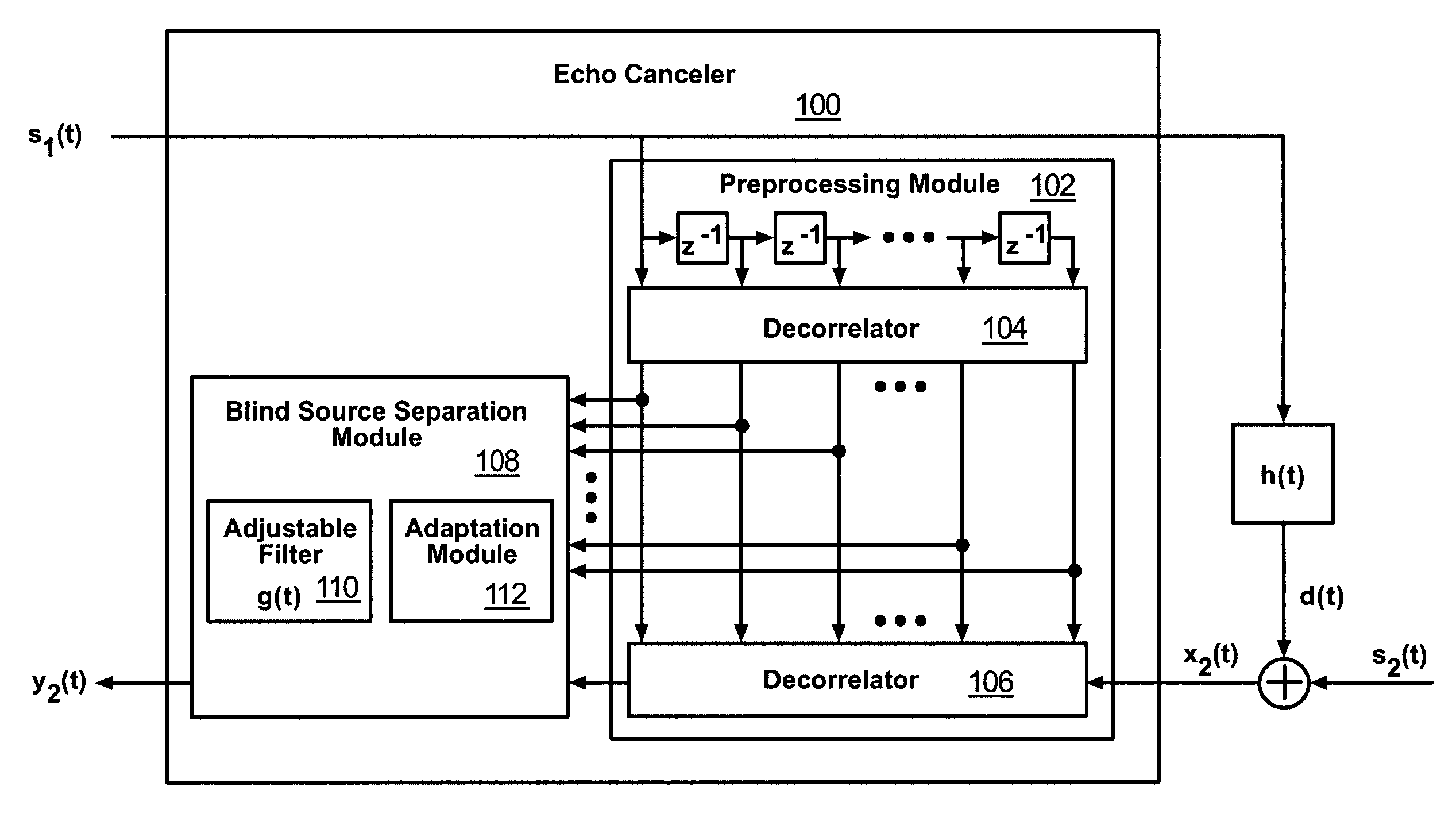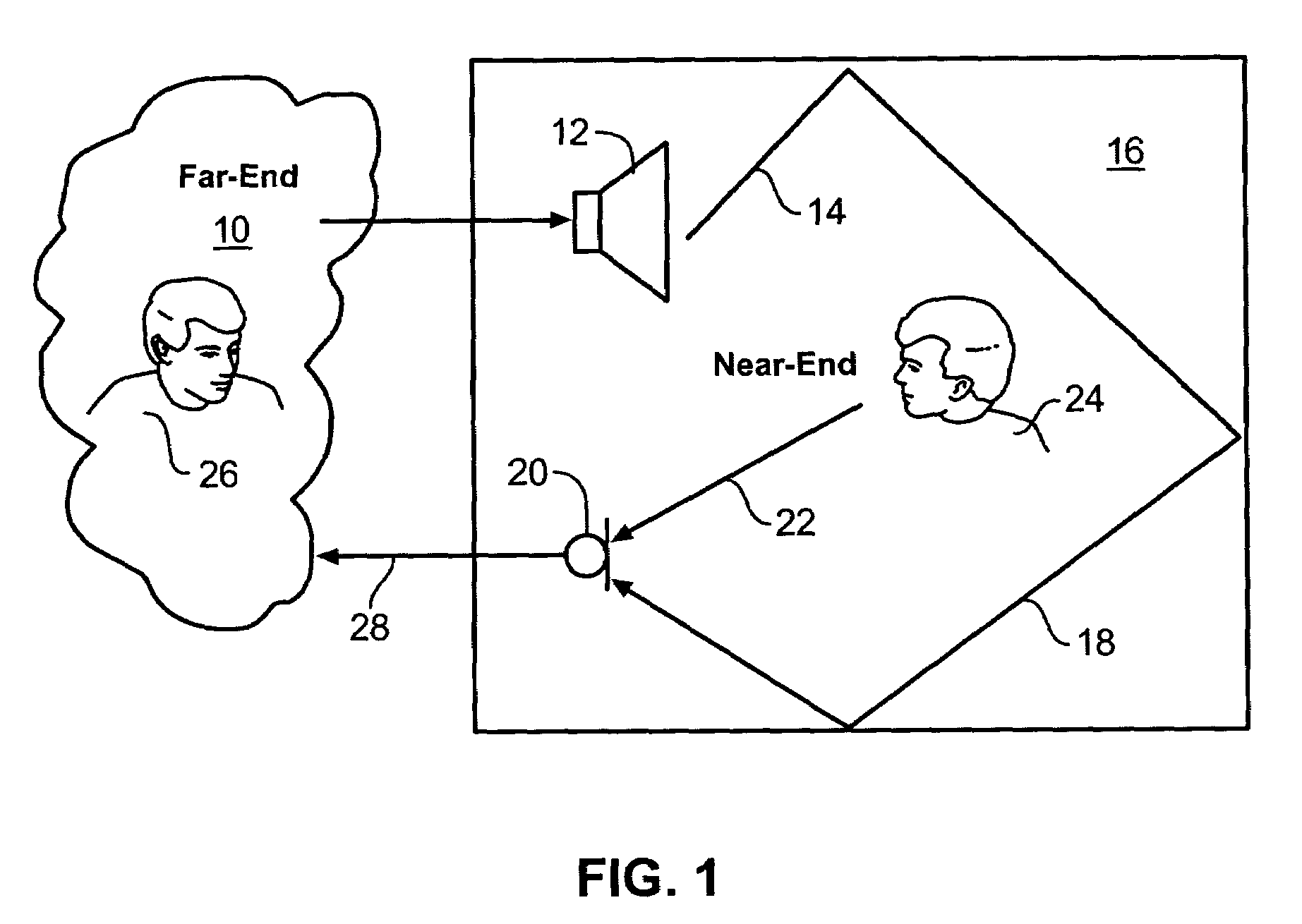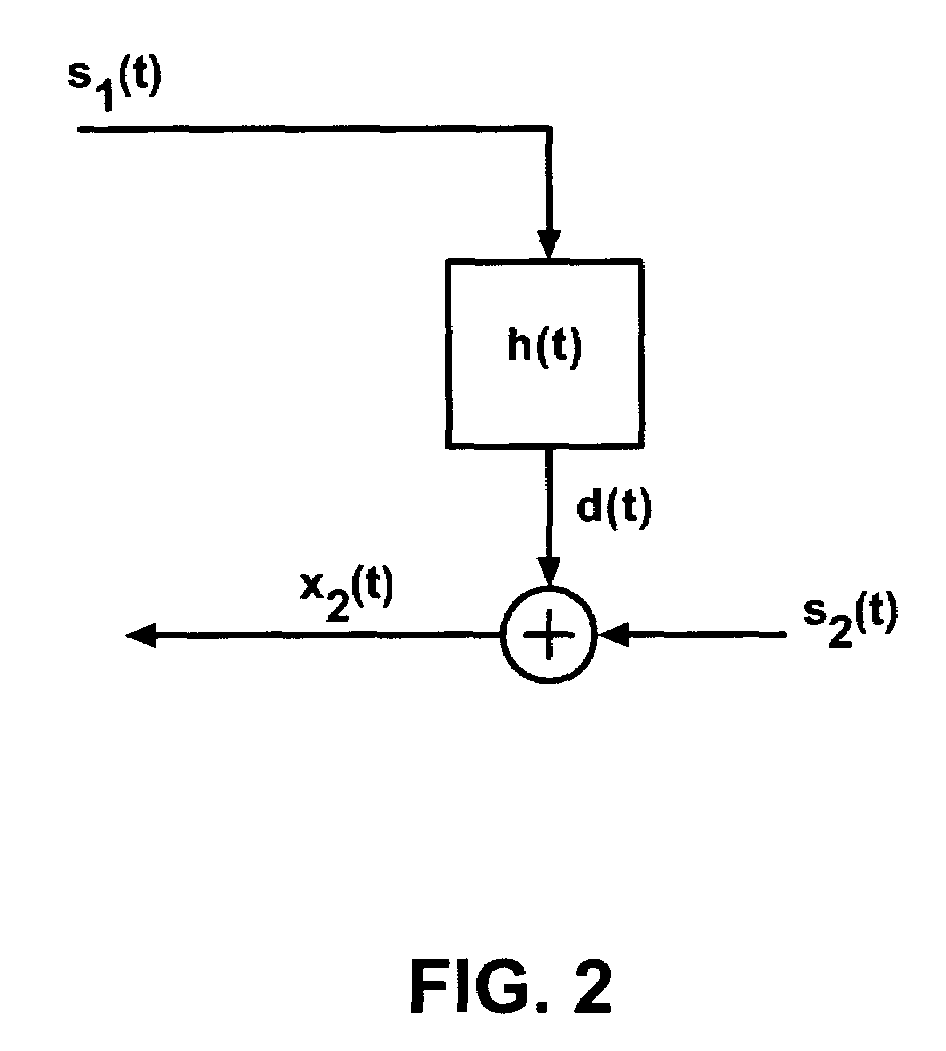Echo cancellation filter
a filter and echo technology, applied in the field of telecommunication filtering, can solve the problems of unacceptably disruptive feedback for the far-end user, the echo canceler cannot distinguish speech from any other type of acoustic signal, and the state cannot be in the silence or a far-end talk event, so as to reduce the effect of echoes
- Summary
- Abstract
- Description
- Claims
- Application Information
AI Technical Summary
Benefits of technology
Problems solved by technology
Method used
Image
Examples
Embodiment Construction
[0037]Reference is now made to the figures in which like reference numerals refer to like elements. For clarity, the first digit or digits of a reference numeral indicates the figure number in which the corresponding element is first used.
[0038]Throughout the specification, reference to “one embodiment” or “an embodiment” means that a particular described feature, structure, or characteristic is included in at least one embodiment of the present invention. Thus, appearances of the phrases “in one embodiment” or “in an embodiment” in various places throughout this specification are not necessarily all referring to the same embodiment.
[0039]Furthermore, the described features, structures, or characteristics may be combined in any suitable manner in one or more embodiments. Those skilled in the art will recognize that the invention can be practiced without one or more of the specific details, or with other methods, components, materials, etc. In other instances, well-known structures, ...
PUM
 Login to View More
Login to View More Abstract
Description
Claims
Application Information
 Login to View More
Login to View More - R&D
- Intellectual Property
- Life Sciences
- Materials
- Tech Scout
- Unparalleled Data Quality
- Higher Quality Content
- 60% Fewer Hallucinations
Browse by: Latest US Patents, China's latest patents, Technical Efficacy Thesaurus, Application Domain, Technology Topic, Popular Technical Reports.
© 2025 PatSnap. All rights reserved.Legal|Privacy policy|Modern Slavery Act Transparency Statement|Sitemap|About US| Contact US: help@patsnap.com



